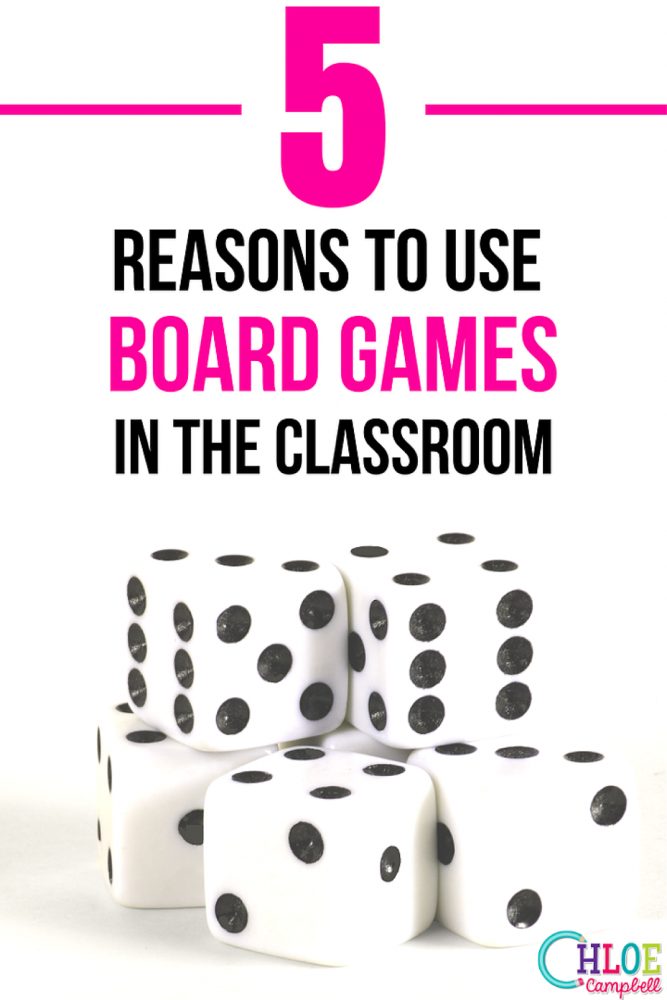5 Reasons to Use Board Games in Your Classroom

I started using board games the very first year I was in the classroom. I couldn’t keep my students on task during partner work – between their off topic conversations and them being bored out of their minds, I knew I needed to spice up our practice time. I started by hand drawing every.single.game and handwriting every.single.question. 🤦♀️ Let’s be real – it wasn’t an efficient use of my time BUT it made a difference in my classroom. Fast forward: I’ve simplified the process and I haven’t stopped using board games since. Here are five reasons why I continue to use board games in my classroom:
1. Improves Academics
Students are practicing the exact same problems that are on any given worksheet. The problems just look a little a different because they are in a game format.We have to make our students interact with content one way or another. Why not make it more engaging so they’ll actually participate in learning without realizing they are actually working?
I should also add that I teach my students that the game isn’t the most important part to me. It’s the idea that they are still practicing what we’ve been learning about in class. Whenever I see a friendly competition go south, I quickly intervene to remind them that it’s still just math (or whatever subject). Typically, though, the competition gives them a reason to work hard!
2. Student Engagement
I use board games at least once a week in my classroom and the kiddos still CHEER when I tell them what we’re doing. Yes, they still are held accountable and have to record their answers. Yes, they still have to show their work (one whiteboards or paper). And yes, they are still standards-based……but the students don’t even realize it! They are too engaged to recognize that they’re doing work!
3. Social Skills
We all know that our kiddos need some more time to practice those precious social skills. They have so MANY opportunities to use social skills when playing a board game. I tend to emphasize these heavily in the beginning of the year then go back and reteach as needed.
Students will:
✅Realize that losing a game isn’t the end of the world
✅Politely tell a partner they disagree with their answer
✅Coach a classmate through finding the answer
✅Learn how to ask a partner for help
✅ Practice taking turns
4. Spice Things Up
Students can learn from worksheets. They truly can. But, just like anyone else, they’ll get bored from doing the same type of activity regularly. Add board games to your cycle of partner tasks to spice things up.
5. Time to Bond with Students
Not only can you circulate and work with most of your students during board game time, you’ll also get to change hats for a few minutes. You’ll change out the “boss” hat to the “friend” cap while you encourage a friendly competition between your students.
My favorite trick with board games: Partner yourself up with your most difficult student. Whether its based on behavior or academics, it’ll truly change your relationship with that student. You’ll be playing a game and they just won’t be able to resist learning WHILE playing a game with their [new favorite] teacher!
Looking for already made board games?







Thank you!!1